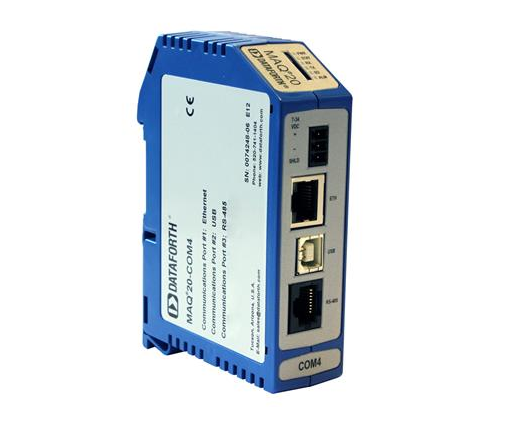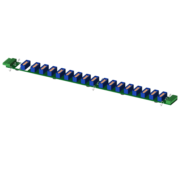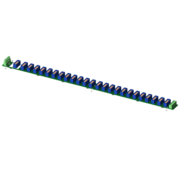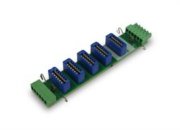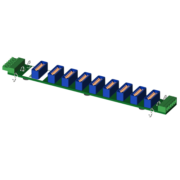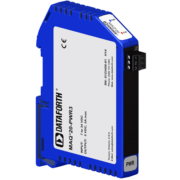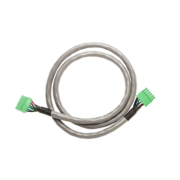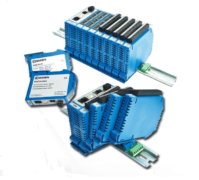The MAQ20 communications module is offered in two models and provides the connection between a host computer and a MAQ®20 Data Acquisition System. MAQ20-COM4 communicates using Ethernet, USB, or RS-485; MAQ20- COM2 uses Ethernet, USB, or RS-232. Ethernet communications use the Modbus TCP protocol and USB communications are based on the Modbus RTU protocol, which RS-485 and RS-232 communications also use. Serial communications over RS-485 can be either 2-wire or 4-wire.
When using the Ethernet interface, up to four simultaneous socket connections are supported and each socket can process up to four simultaneous Modbus TCP transactions. Serial communications over RS-232 or RS-485 can be run at baud rates as fast as 921.6kbps.
A very useful feature of the MAQ20 system is the capability to store acquired data locally for later analysis. This is provided by the easily accessible and removable 4GB micro-SD memory card that is in the MAQ20-COMx module and can be used to log data acquired from all input modules. Each MAQ20-COMx module can interface to up to 24 I/O modules in any combination, allowing high channel counts and great flexibility in system configuration.
To power the system, a 7-34VDC power source is connected to the communications module. Regulated and protected supplies within the module then provide power both to the internal circuits and to all I/O modules in the system. When many high power I/O modules are used in a system, MAQ20-PWR3 load-sharing boost power supply modules can be installed in standard I/O module slots to provide the necessary additional power.
To ensure robustness, the communications interface-to-bus isolation is 50VDC and power input terminals are protected against overvoltage, transient, and reverse connections. As a minimum, a MAQ®20 Data Acquisition System must have a communications module, a backbone, and one I/O module.

